Financial deepening drive in Uganda given $19m boost
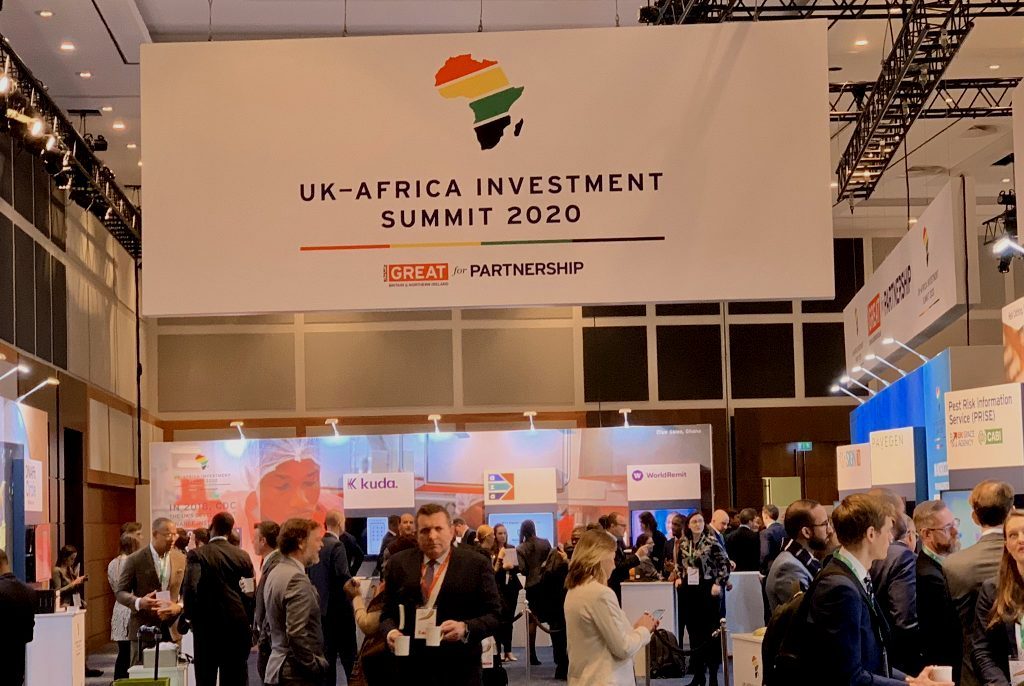 The new financial package was announced on the eve of the summit hosted by British Prime Minister, Boris Johnson to raise the UK’s profile after it leaves the European Union.
The new financial package was announced on the eve of the summit hosted by British Prime Minister, Boris Johnson to raise the UK’s profile after it leaves the European Union.
Financial Sector Deepening Uganda (FSDU) early this week welcomed a £15 million ($19.5 million) commitment from UK Aid, part of a £320 million package that will initiate an ambitious new phase of financial sector development across the continent.
“The new commitment announced by the UK Government at the UK-Africa Investment Summit, alongside support from the Bill & Melinda Gates Foundation will ensure organisations like FSD Uganda can deliberately link their early successes to changes in the real economy,” Rashmi Pillai the FSDU Executive Director said on Monday.
Financial Sector Deepening Uganda (FSDU) was established in 2015 to improve the livelihoods of poor people through reduced vulnerability to shocks, increased income and employment creation. Working closely with financial services regulators, industry actors and other development agencies, FSDU’s initiatives increase access to financial services for poor people and micro, small and medium enterprises (MSMEs) by correcting market inefficiencies and promoting a deeper and broader financial sector in Uganda.
Pillai said, “We will continue to work closely with our partners to address supply-side issues and invest in facilitating the financial sector to understand and effectively serve the needs of the real economy in key sectors such as agriculture and agro-processing, trade, education and affordable housing. This will enable our work to contribute to economic and social gains for all, reducing poverty and securing prosperity for many more Ugandans.”
According to the 2018 FinScope Uganda Survey Report Uganda has made great progress reducing financial exclusion from 43% (2006) to 22% (2018), a trend greatly driven by adoption of mobile money. FSDU has translated this trend into benefits for marginalised groups by providing grants, facilitating technical assistance and capacity building and conducting research to catalyse innovation in financial policy, market infrastructure and products. Programmatic efforts have resulted in access to improved financial services for over 558,344 individuals, 39% of whom are women and 3,380 small enterprises.
Announced ahead of the UK-Africa Investment Summit held in London, the package includes additional funding for nine existing Financial Sector Deepening Programmes (FSDs) and to set up and scale new FSDs in high-priority markets, including Ethiopia, Ghana, Sierra Leone and the West African Monetary Union.
The new commitment, announced by Secretary of State Alok Sharma, represents the start of an important new approach to financial sector development in sub-Saharan Africa.
The package from UK Aid recognises that a comprehensive, integrated approach to financial market development in Africa is required to realise the continent’s potential and help meet the United Nations’ global goals.
The £320m commitment provides funding for ambitious programmes that create financing solutions for the opportunities and challenges faced across Africa’s economies, from individual households and micro-enterprises to business and infrastructure investment. This means addressing the entire system of finance from savings groups to capital market development, and operating more closely to the interface between finance and the real world.
UK International Development Secretary Alok Sharma said, “Africa’s substantial investment potential is clear, with many African countries outstripping global economic growth in recent decades. The UK is already the top financial exchange for Africa’s businesses and we want investors to seize the exciting opportunities that Africa offers. These new initiatives, announced ahead of the UK-Africa Investment Summit, will make it easier, greener and more secure to invest in Africa, mobilising billions of pounds of sustainable investment to help end poverty.”
The £320 million package also marks an important step forward for the FSD Network. After nearly twenty years of operation and UK aid support, the FSD Network today comprises nine active FSD programmes, with a strong track-record of impact, unparalleled local insight with applied research, and a powerful network of relationships with local regulators, policy makers, industry bodies, and low-income households. The new FSDs will join the Network, enabling them to benefit from, and contribute to, continent-wide knowledge sharing and cross-border collaboration.
Betty Wilkinson, Chair of the FSD Network Council said, ‘On behalf of the nine existing members of the FSD Network and those new FSDs in formation, our sincere gratitude to the UK Government for this generous, constructive, and thoughtful five-year commitment. We pledge to broaden and deepen our innovative work across Africa to make money work for low-income families, women, youth, the excluded, and those who need financial services the most. This new package will enable us to apply finance – in all its forms – to the challenge of the Sustainable Development Goals. The FSD Network will enhance livelihoods for poor people; improve access to basic human services where finance is a barrier; and enable a sustainable future, particularly addressing the financial aspects of climate change and illicit capital flows.’

 Trading leads as main source of income for Ugandans
Trading leads as main source of income for Ugandans
 New leadership for bankers’ umbrella as total assets top $12 billion
New leadership for bankers’ umbrella as total assets top $12 billion
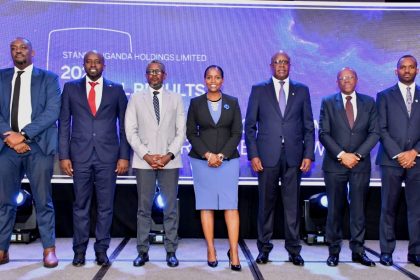 Big fish in small pond Stanbic notches up $100m profit for 2023 topping previous figure by 15%
Big fish in small pond Stanbic notches up $100m profit for 2023 topping previous figure by 15%
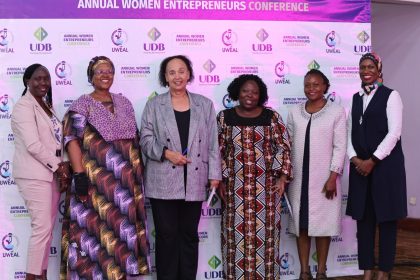 Inaugural event sets agenda for supporting women-owned businesses
Inaugural event sets agenda for supporting women-owned businesses
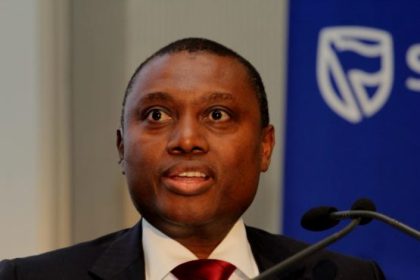 Standard Bank Group reports $2 billion earnings up 27% from 2022
Standard Bank Group reports $2 billion earnings up 27% from 2022
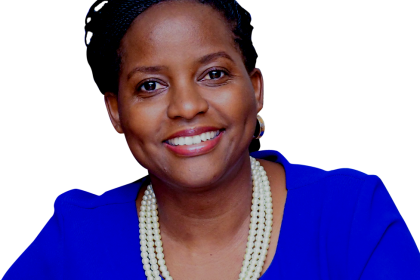 Stanbic Bank Uganda Chief Executive elevated to regional role in Nairobi
Stanbic Bank Uganda Chief Executive elevated to regional role in Nairobi
